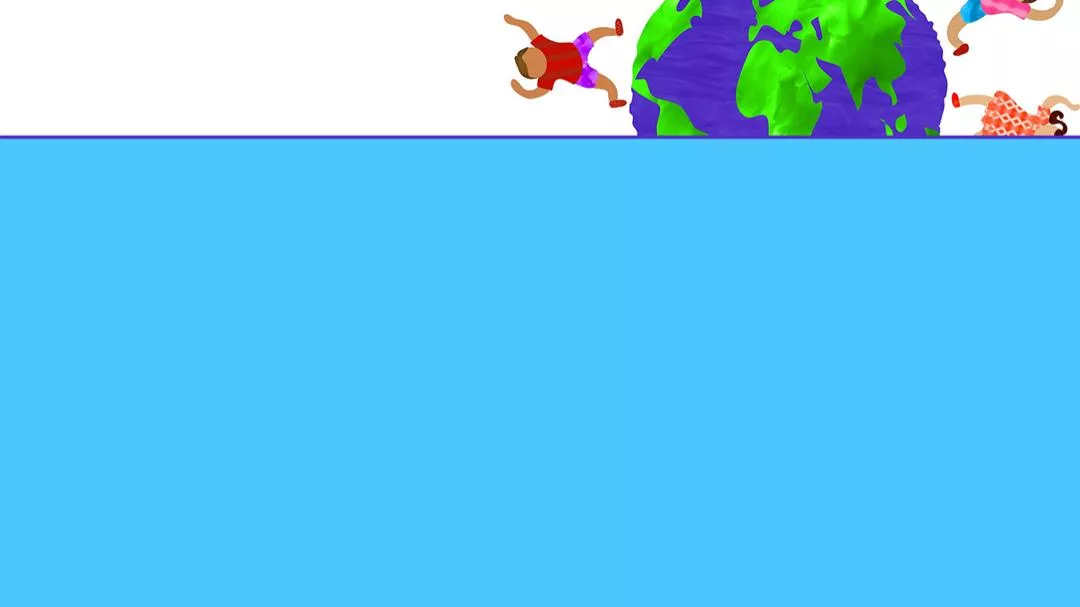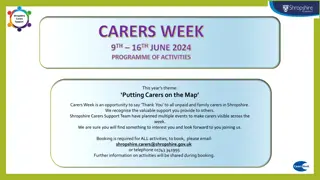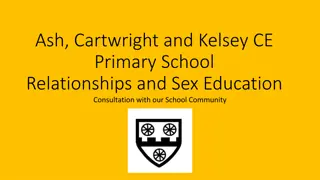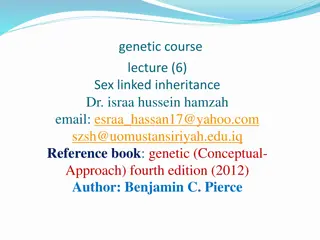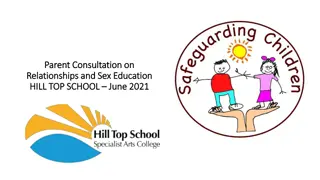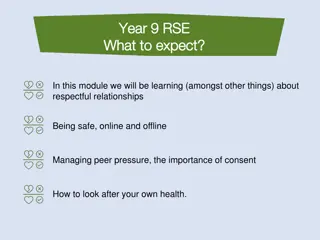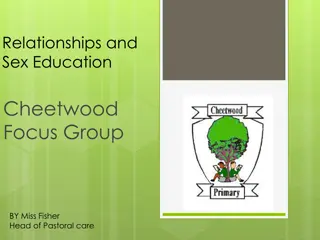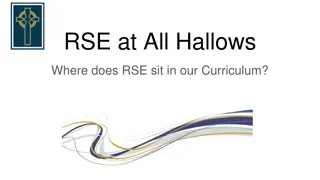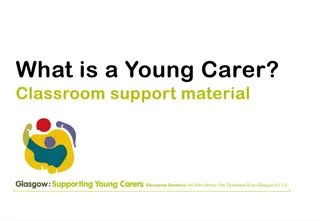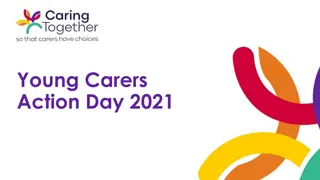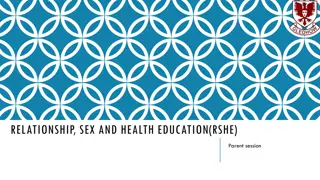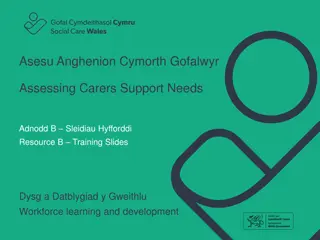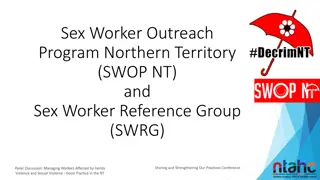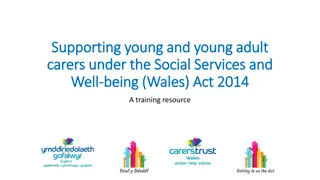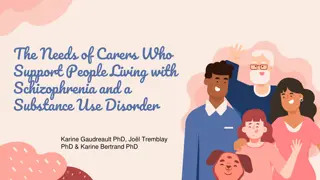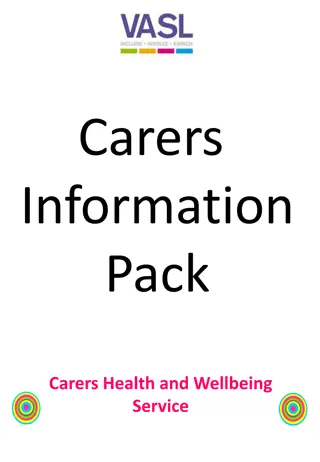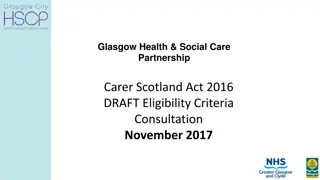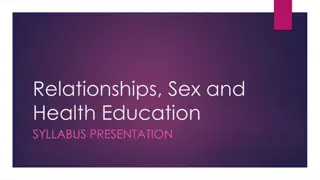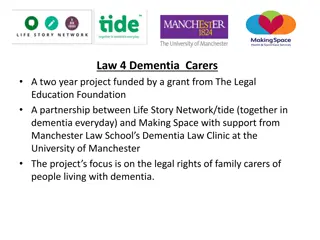Understanding Relationships and Sex Education (RSE) Guidance for Parents/Carers
Personal, Social, Health and Economic Education (PSHE) plays a crucial role in promoting positive attitudes towards health and wellbeing for children. At Bridgeview Special School, children are taught about relationships through age-appropriate lessons using the Jigsaw program. Parents/carers are encouraged to support this learning at home. The curriculum has changed to address the increasingly complex world children are growing up in, focusing on the safety and health of students. Open and factual education about relationships and growing up allows children to learn accurate information in a secure environment, enabling them to make informed decisions later in life.
Download Presentation

Please find below an Image/Link to download the presentation.
The content on the website is provided AS IS for your information and personal use only. It may not be sold, licensed, or shared on other websites without obtaining consent from the author. Download presentation by click this link. If you encounter any issues during the download, it is possible that the publisher has removed the file from their server.
E N D
Presentation Transcript
Relationships and Sex Education (RSE) Parents/Carers guide to understand new Department for Education guidance and what is taught in schools.
Personal, Social, Health and Economic Education (PSHE) Promoting positive attitudes towards their health and wellbeing is an important part of children s overall education. As part of PSHE lessons at Bridgeview Special School, your child will be taught about relationships. This is done through a series of lessons using the Jigsaw program. All lessons will be age appropriate and will look at a range of topics from; growing up and puberty to self-esteem and e-safety. We believe it is vital that children understand what a healthy relationship is and how to keep themselves safe in an ever changing world.
Parent/Carer Survey Thank you very much to all parents/carers who completed the online survey about PSHE teaching at Bridgeview Special School. A number of parents/carers asked for more information about what is specifically taught in SRE at the primary school level. This presentation will give you an overview of what your child will learn in school and how to support this learning at home. For specific curriculum content and coverage, please contact the school office to arrange a time to view this and access previewed resources https://jigsawpshe.com/parent-and-carers
Why has the curriculum changed? Today s children and young people are growing up in an increasingly complex world and living their lives seamlessly on and offline. This presents many positive and exciting opportunities, but also challenges and risks. In this environment, children and young people need to know how to be safe and healthy, and how to manage their academic, personal and social lives in a positive way. The Children and Social Work Act 2017 introduced a new legislation on Relationships Education, Relationships and Sex Education, and Health Education in Schools. Safeguarding Children is at the heart of Relationships and Sex Education.
Why is it important? Honest, open and factual education about relationships and growing up gives children the opportunity to learn accurate, truthful information in a safe and secure environment. We want our pupils to be able to ask any questions they may have about their bodies and thoughts. We will never answer inappropriate questions but will always endeavour to address any misconceptions children may have about relationships and sex education. It is important to note that discussing relationships and growing up with children won t encourage them to engage in sexual relationships any sooner. Evidence shows that children whose parents talk about puberty, growing up and relationships openly and who receive relationships education at school are more likely to make safer and informed decisions later in life.
Relationship and Sex Education Relationships education will be compulsory for all primary age pupils from the Summer Term 2021. Parents do not have the right to withdraw their children from relationship education. Parents do have the right to withdraw their children from sex education. Sex education is not compulsory in primary schools, beyond the science curriculum At Bridgeview Special School, we support the science curriculum with an additional Sex and Relationships teaching unit taught in Year 5/6. Health education will be compulsory for all pupils in school. At Bridgeview Special School, our curriculum content has been developed in line with our policy, taking into account the age, needs, and feelings of pupils. Teaching at school will complement and reinforce the lessons families teach their children as they grow up.
Curriculum Delivery Relationships and Sex Education is taught within the personal, social, health and economic (PSHE) curriculum. Relationships education focuses on teaching the fundamental building blocks and characteristics of positive relationships. At Bridgeview Special School, we use the Jigsaw PSHE Programme, PSHE Association and NSPCC to deliver our PSHE and RSE. Our RSE topics include: 1. Being Me in My World (BM) 2. Celebrating Difference (CD) 3. Dreams & Goals (DG) 4. Healthy Me (HM) 5. Relationships (RL) 6. Changing Me (CM)
Science Education Curriculum We teach the following statutory science objectives that build understanding about growth and reproduction: Key Stage 1 (age 5-7years) Year 1 pupils should be taught to: Identify, name, draw, and label the basic parts of the human body and say which part of the body is associated with each sense. Year 2 pupils should be taught to: Notice that animals, including humans, have offspring which grow into adults. Describe the importance for humans of exercise, eating the right amounts of different types of food, and hygiene. Key Stage 2 (age 7-11years) Year 5 pupils should be taught to: Describe the life process of reproduction in some plants and animals. Describe the changes as humans develop to old age. Year 6 pupils should be taught to: Recognise that living things produce offspring of the same kind, but normally offspring vary and are not identical to their parents.
LGBTQ+ Teaching children about diversity and that there are different families and lifestyles should be taught from a young age. This will save difficult questions and confusion when they are older. Having open discussions with your children about diversity will allow them to become more accepting and respectful of other people s views and beliefs as they grow up. During Jigsaw lessons and across the curriculum, LGBTQ+ is discussed and diversity is included throughout the curriculum.
Names for body parts Scientific names (penis, testicles, etc) for body parts should be introduced as soon as the child can name body parts. This will allow them to understand a range of concepts as they grow up such as consent and safeguarding themselves from potential harm. Whenever body parts are discussed in lessons at school, the scientific names will be used.
Respect Teaching children to respect their own and others bodies and the privacy and wishes of another person can begin at a very early age; these values are the foundations they need to engage in consensual loving relationships when they get older. Respect is a theme which runs through every PSHE and RSE lesson in every year group.
Changing bodies and growing up It is very important that children learn about the changes their body will go through before it happens. Generally, it is important for girls to learn about periods before they are around 9 years of age and for boys to learn about how their bodies will change before they are around 11 years of age. This will allow them to ask any questions they may have so they are not fearful for when changes do occur. You can support this learning at home by chatting to your children in an open and honest way about your own experiences, allowing them to tell you any concerns they may have so that you can comfort and reassure them that these changes are natural and important.
Being caught off guard If your child asks a question at an inappropriate time, or you are caught off-guard and need time to prepare your answer, you could reply with that s a good question, can we talk about it a little later? . Make sure you come back to the topic as soon as possible, when you are ready. You may not wish to answer the exact question they asked. If you feel it was inappropriate, explain your reasons to them and tell them that they do not need to know that right now, but when they are a little older you will answer the question they have.
Knowing what to say and when It can be difficult to know at what age a child should know something in particular in regards to relationships and sex education. Generally, if a child is asking a parent/carer a question, they are probably ready to receive a truthful answer. All children are different and some are more curious than others.
YOU are the chosen one! Sometimes, when children ask questions about their bodies or sex, you may feel embarrassed or think they shouldn t know about anything like that until they are much older. However, it is really important to recognise that they feel safe around you and if they ask you a questions it is probably because they trust that you will give them the correct answer. It is really important that children feel they can ask questions and know they can get an honest answer without being judged. If a child feels that these topics are wrong, they will have no one to get facts from and that is when they piece information together which can be incomplete, misleading or just totally incorrect. Making the subjects of growing up, relationships, LGBTQ+ and reproduction a normal part of life promotes positive attitudes towards health, wellbeing and relationships.
Summer 1 Relationships During Summer One, your child will be focusing on Relationships in their Jigsaw lessons. Here is a brief overview of what they will learn in each Key Stage (KS). KS1 (Years 1 and 2) In this key stage, lessons will focus on families and friendships. Your child will learn about the people who help us (police, family, emergency responders) and there will be lessons on friendships and conflicts. They will also look into secrets and trust. LKS2 (Years 3 and 4) Children in this key stage will build on their learning from KS1, looking at family roles and responsibilities, jealousy and falling out with friends. They will also learn about love and loss and how to keep special memories of special people/pets/things which they may have lost. Children will also learn how to keep themselves safe online. UKS2 (Years 5 and 6) In years 5 and 6, children will look at their self-esteem and mental health and how to have a healthy relationships with these. They will also focus on online safety and relationships with technology (screen time) and understanding that things and relationships online can be fake.
Summer 2 Changing Me During Summer Two, your child will be focusing on how their bodies change in their Jigsaw lessons. Here is a brief overview of what they will learn in each Key Stage (KS). KS1 (Years 1 and 2) In this key stage, lessons will focus life cycles and how children have changed from being a baby to now. They will also look at the differences between girl s and boy s bodies. LKS2 (Years 3 and 4) Please note: Due to changes in the law from June 2021, you will only be able to withdraw your child from lessons about conception. Children in this key stage will build on their learning from KS1, looking at the changes that will happen inside and outside their bodies focusing on how a female s body will change to have a baby. Children will also look at how babies grow but NOT how they are conceived. UKS2 (Years 5 and 6) In years 5 and 6, children will look at their body image and think about their real and ideal self. They will also look at puberty in boys and girls and how this helps their bodies prepare for the conception of a baby later in life. Children will learn how babies grow, from conception to birth.
Commonly Asked Questions. Will schools have to engage with parents before teaching these subjects? Schools are required to consult parents when developing and reviewing the RSE policy. Schools will listen to all stakeholder s views and make a reasonable decision on what, when and how the RSE curriculum is taught. Do parents have a right to withdraw their child from RSE? Primary Education parents can withdraw their child from any aspect of Sex Education other than what is covered in the Science Curriculum. The Right to Withdraw form can be found in the PSHE and RSE Policy. Parents do not have the right to withdraw children from Relationships or Health Education. Does the new RSE curriculum take into account faith? The DfE states that Relationships Education has been designed to help children from all backgrounds build positive and safe relationships, and to thrive in modern Britain this means taking into account the religious background of pupils when planning teaching, so that topics are appropriately handled.






